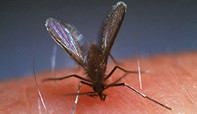Parasites in travellers: a brief guide
The generally accepted definition of a parasite is an organism that lives on or in another, usually larger, host organism in a way that harms or is of no advantage to the host. Parasites cause a wide variety of diseases (see Tables 1 and 2), yet they have limited modes of transmission. Blood transmission is relatively rare; the more common modes are via skin, mucous membrane or ingestion. Parasites do not always induce an inflammatory response and may live in their host for prolonged periods of time, often many months and sometimes years, without causing local or systemic symptoms or signs. This factor, together with a lack of awareness of these diseases by both patient and doctor, may lead to delayed diagnosis or misdiagnosis, with potentially severe and sometimes fatal consequences.

